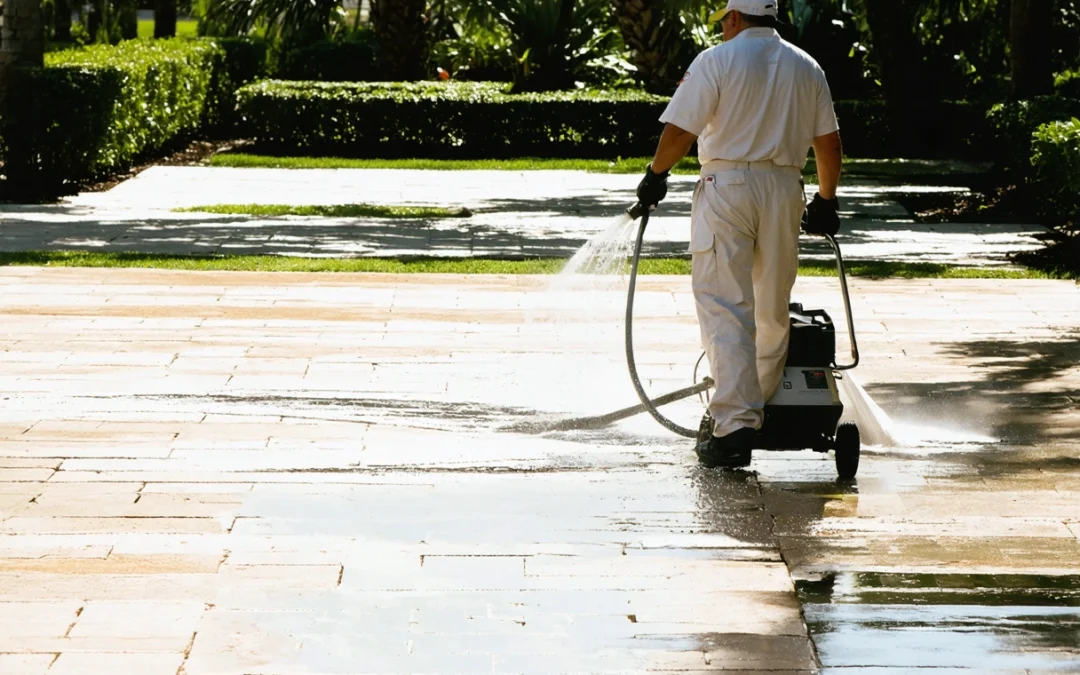Pro Tips for Spotless Pavers: How Professional Cleaning Makes a Difference
Paver stones add timeless beauty and functionality to patios, driveways, walkways, and pool decks. However, keeping them looking their best can be a significant challenge. Dirt, stains, weeds, moss, and weather all work together to tarnish their appearance. While DIY cleaning methods may deliver marginal results, professional paver cleaning services can restore and protect your investment in ways that are difficult to achieve on your own. In this comprehensive guide, we’ll explore why spotless pavers matter, the science behind professional cleaning, proven methods and technologies, and why expert care can transform and extend the life of your hardscape.
Whether you’re a homeowner seeking to boost curb appeal or a property manager aiming to preserve value, understanding the nuances of paver care is essential. Let’s dive into the world of paver cleaning and discover how the pros make all the difference.
Why Spotless Pavers Matter: More Than Just Curb Appeal
Clean pavers do more than enhance the visual appeal of your property. They play a crucial role in maintaining the safety, durability, and value of your outdoor spaces. Accumulated grime, algae, and moss can create slippery surfaces, posing risks for slips and falls. Stains from oil, rust, or organic matter can permanently discolor stones if not addressed promptly. Regular and thorough cleaning not only preserves their appearance but also prevents long-term damage that can be costly to repair.
Moreover, spotless pavers contribute to a welcoming environment, reflecting pride of ownership and attention to detail. Whether you’re hosting gatherings or showing a property to potential buyers, clean pavers make a dramatic first impression. For more on the psychology of curb appeal, see this insightful article on the psychology of curb appeal.
The Science Behind Paver Soiling & Staining
Understanding what causes pavers to become dirty or stained is the first step to effective cleaning. Pavers are porous, meaning they absorb water and anything carried with it, such as dirt, oils, and organic material. Rain, irrigation runoff, and even foot traffic can transport contaminants deep into the surface. Over time, these contaminants accumulate, leading to unsightly stains and the growth of weeds, moss, and algae.
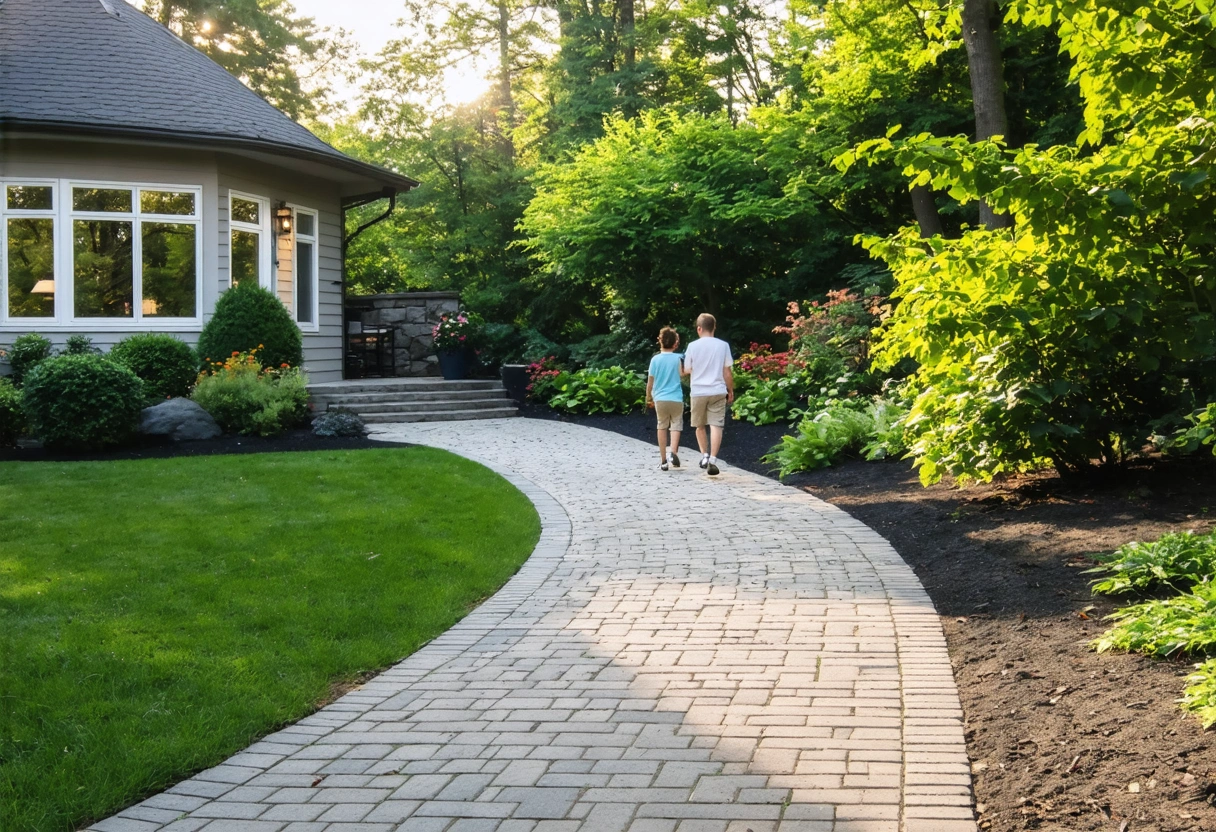
Common sources of paver soiling include:
- Organic debris: Fallen leaves, pollen, and plant matter can break down and leave stains.
- Automotive fluids: Oil and grease from vehicles on driveways.
- Rust: Metal furniture or garden tools left on pavers can cause rust marks.
- Moss and algae: Shady or damp conditions promote growth, making surfaces slippery and unsightly.
- Efflorescence: Mineral salts migrate to the surface and crystallize, leaving white, powdery deposits.
Learning about the processes behind these issues can help you appreciate the value of targeted cleaning. For a deeper dive into the science of stains, check out this detailed guide on mechanisms of stain formation in porous materials.
DIY Cleaning vs. Professional Paver Cleaning: The Real Differences
Many property owners attempt DIY paver cleaning with store-bought chemicals, stiff brushes, or rented pressure washers. While these methods can yield temporary improvements, they often fall short of delivering long-lasting results. In fact, improper cleaning techniques may even damage pavers, erode joint sand, or cause uneven color fading.
Professional cleaning services bring expertise, specialized equipment, and safe, effective cleaning agents to the task. Trained technicians know how to assess the type of paver, the nature of the stains, and the best approach. They use commercial-grade pressure washers, rotary surface cleaners, and eco-friendly solutions that penetrate deeply without harming the pavers or surrounding landscaping. Professionals can also recommend and apply protective sealants, enhancing both appearance and durability.
For a comparison of cleaning techniques and the risks of DIY, see this informative resource on how to clean pavers safely.
Potential Pitfalls of DIY Paver Cleaning
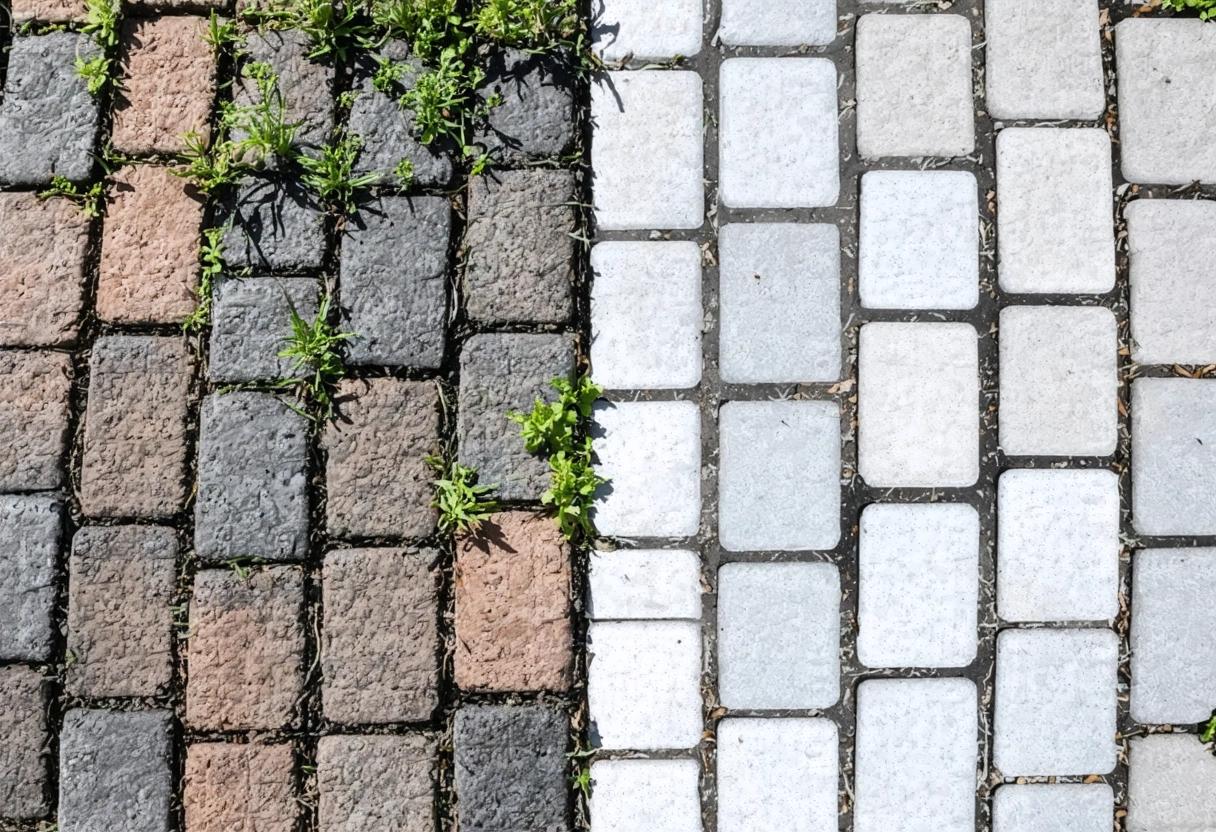
- Using too much pressure can etch or crack paver surfaces.
- Improper chemicals may discolor or degrade pavers and kill nearby plants.
- Failure to re-sand joints can lead to shifting and weed growth.
- Uneven cleaning leaves streaks and patchy results.
In contrast, hiring professionals ensures consistent, high-quality results while minimizing risk.
Professional Cleaning Methods and Technologies
Professional paver cleaning is a multi-step process that goes beyond surface washing. The following techniques and technologies set pros apart from amateur efforts:
1. Pre-Treatment and Assessment
Technicians begin by inspecting the area, identifying stains, weed growth, and any structural concerns. They may apply pre-treatments such as degreasers for oil stains or specialty solutions for rust and organic marks. This ensures that the subsequent cleaning is focused and effective.
2. Precision Pressure Washing
Unlike basic consumer pressure washers, commercial machines used by professionals deliver controlled, adjustable pressure. Rotary surface cleaners distribute water evenly, avoiding gouges or lines on the paver surface. The result is a thorough, uniform clean that preserves the integrity of the stones.
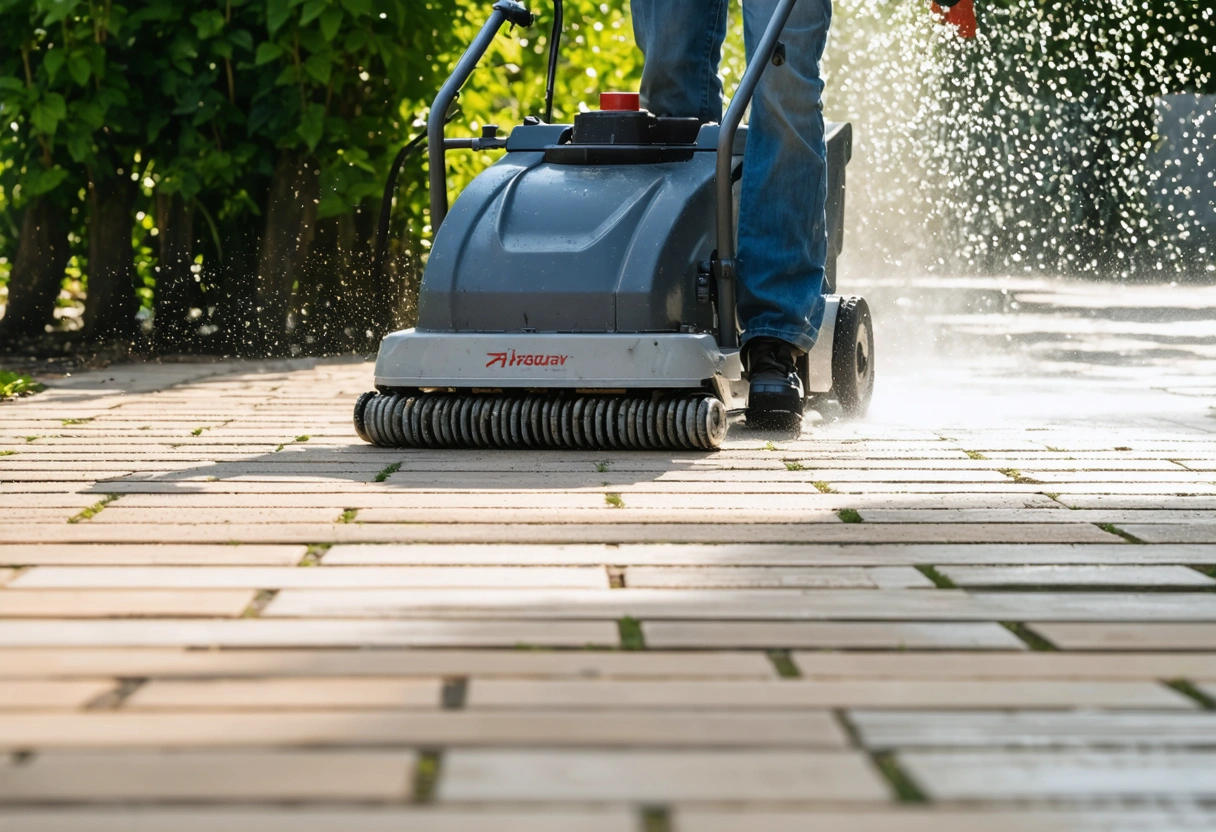
3. Weed and Moss Removal
Professionals use tools and safe herbicides to remove weeds and moss from joints and surfaces without damaging the pavers. They also extract root systems to prevent regrowth, a step often skipped in DIY jobs.
4. Joint Re-Sanding
After cleaning, the sand between pavers may be washed out. Re-sanding with polymeric or kiln-dried sand stabilizes the pavers and deters weed growth and insect infestation. This crucial step maintains the structural integrity of your hardscape.
5. Sealing and Protection
Applying a high-quality sealer locks in the clean appearance, repels stains, and enhances the color of the pavers. Sealers also protect against UV rays and freeze-thaw cycles. For an in-depth explanation of sealing benefits, visit this authoritative page on paver sealers and their advantages.
How Professional Cleaning Extends the Life of Your Pavers
Spotless pavers are more than a point of pride—they are an investment in the longevity of your outdoor spaces. Dirt, debris, and moisture trapped in unsealed or poorly maintained pavers accelerate deterioration. Regular professional cleaning reduces the risk of:
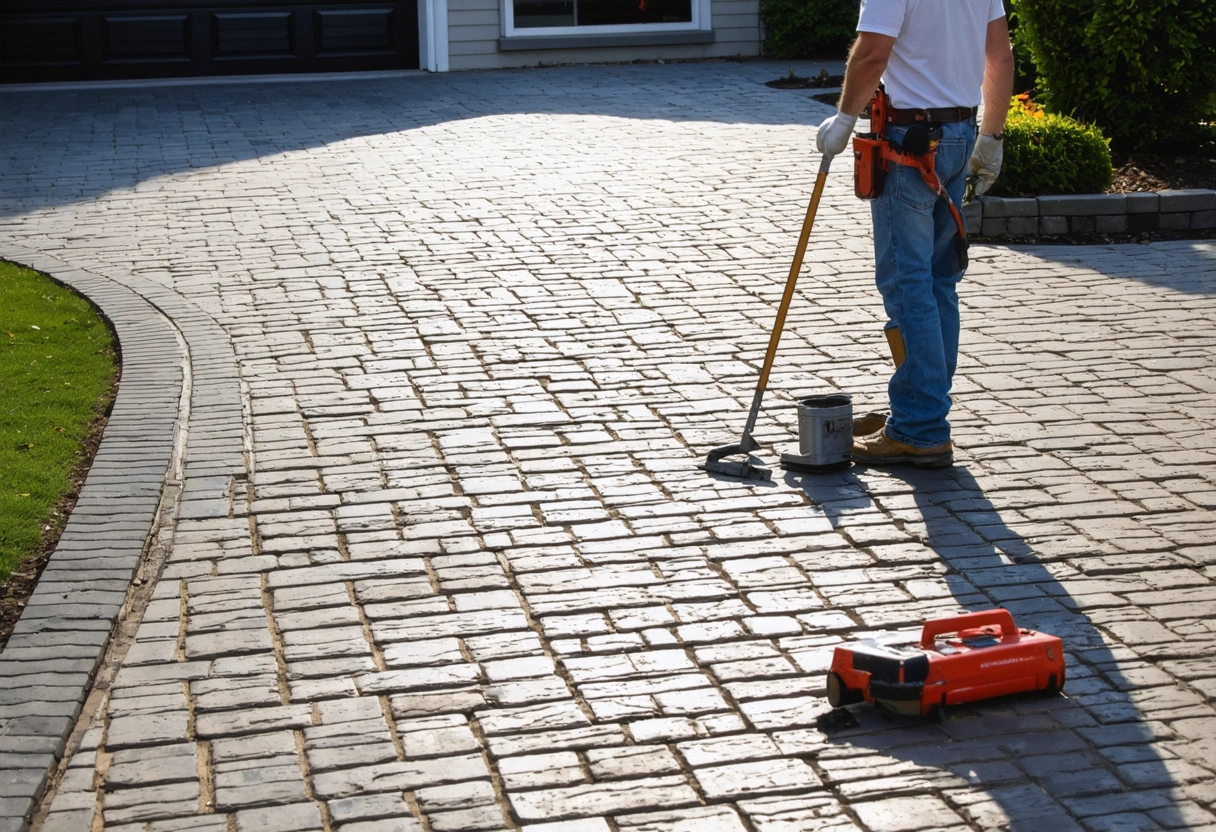
- Cracking and shifting: Removing organic growth and re-sanding joints stabilizes the surface and prevents movement.
- Permanent staining: Early removal of oil, rust, and organic stains stops them from penetrating deeply.
- Surface erosion: Proper pressure washing avoids the abrasion that comes from improper DIY methods.
- Weed and insect damage: Keeping joints clean and filled blocks entry points for weeds and pests.
By maintaining clean, protected pavers, you avoid costly repairs or replacement and ensure lasting beauty and function. For more on the importance of regular maintenance, see this detailed overview from Better Homes & Gardens on cleaning pavers.
Choosing the Right Professional Paver Cleaning Service
Not all cleaning services are created equal. When selecting a professional to care for your pavers, consider the following factors:
- Experience and specialization: Look for companies with a proven track record and specific expertise in paver care.
- Equipment and products: Professionals should use commercial-grade tools and safe, effective cleaning agents.
- Comprehensive services: The best providers offer cleaning, re-sanding, and sealing as part of their packages.
- Reputation and reviews: Check for client testimonials and before-and-after photos.
- Insurance and guarantees: Ensure the company is insured and stands behind its work.
Remember, the lowest bid isn’t always the best value. Quality, experience, and customer satisfaction are key indicators of a trustworthy service provider.
Pro Tips for Maintaining Spotless Pavers Between Cleanings
While professional cleaning delivers superior results, routine care can help sustain that fresh look and reduce the frequency of deep cleanings. Here are some expert tips for ongoing maintenance:
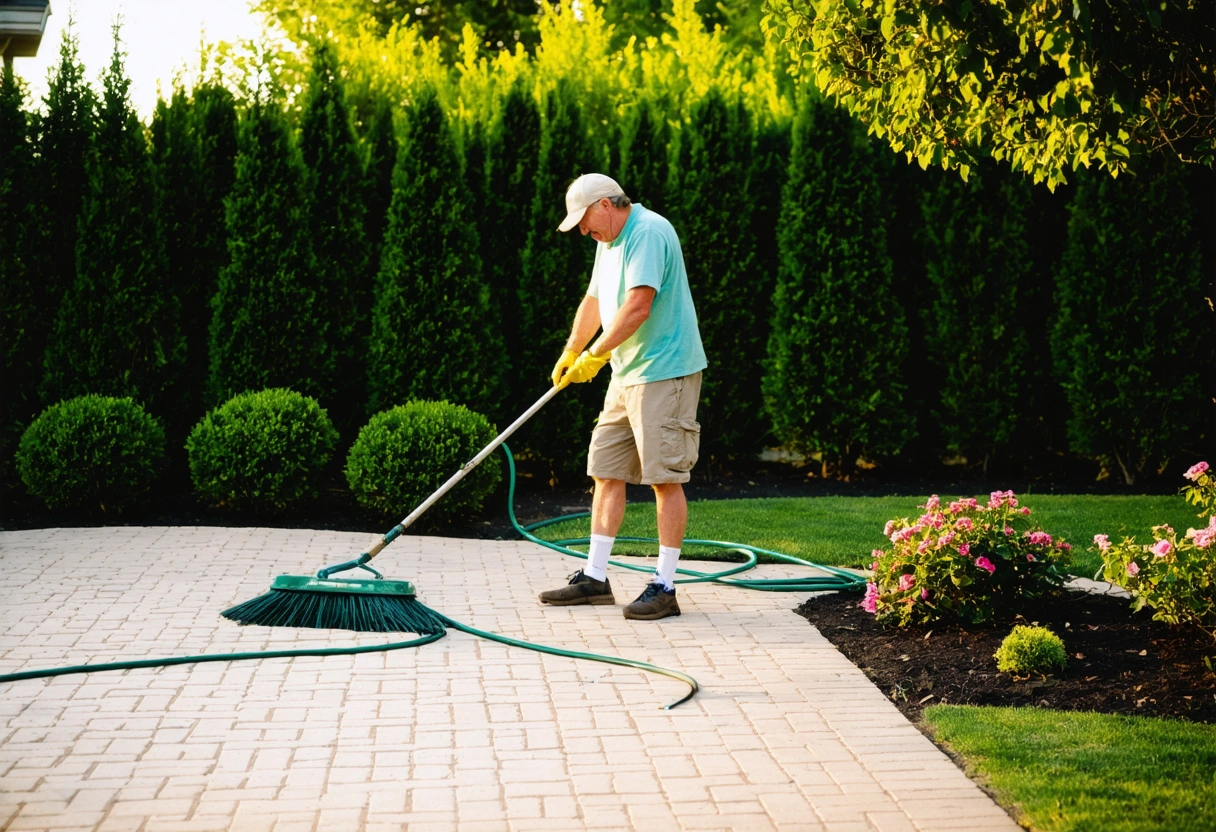
- Sweep or blow debris regularly to prevent organic buildup.
- Rinse pavers with water after storms or heavy use.
- Clean up spills—especially oil or food—immediately to avoid stains.
- Inspect for weeds and remove them promptly, roots and all.
- Check joints for sand loss and refill as needed.
- Consider spot-treating stains with gentle, paver-safe cleaners.
- Monitor for signs of efflorescence and consult a pro if needed.
For a seasonal maintenance checklist, see this helpful resource from Garden Design’s guide to paver maintenance.
When to Schedule Professional Cleaning
Plan for a full professional cleaning every 12 to 24 months, depending on traffic, climate, and exposure to dirt or organic material. Early spring or late fall are ideal times, as they prepare your outdoor spaces for peak use or winterization.
Invest in Clean Pavers for Lasting Beauty and Value
Spotless pavers are the hallmark of a well-maintained property, offering both aesthetic and practical benefits. While DIY methods may provide a quick fix, professional paver cleaning delivers deep, lasting results that protect your investment. From advanced equipment and techniques to expert stain removal and protective sealing, the pros ensure your pavers remain safe, beautiful, and resilient year after year.
By understanding the causes of paver soiling, the differences between DIY and professional methods, and the importance of regular maintenance, you can make informed decisions that preserve your hardscape for decades. Don’t settle for less than the best—enlist the expertise of professional cleaners and enjoy spotless pavers that elevate your property’s appeal and value.
Need help with Pro Tips for Spotless Pavers: How Professional Cleaning Makes a Difference?

